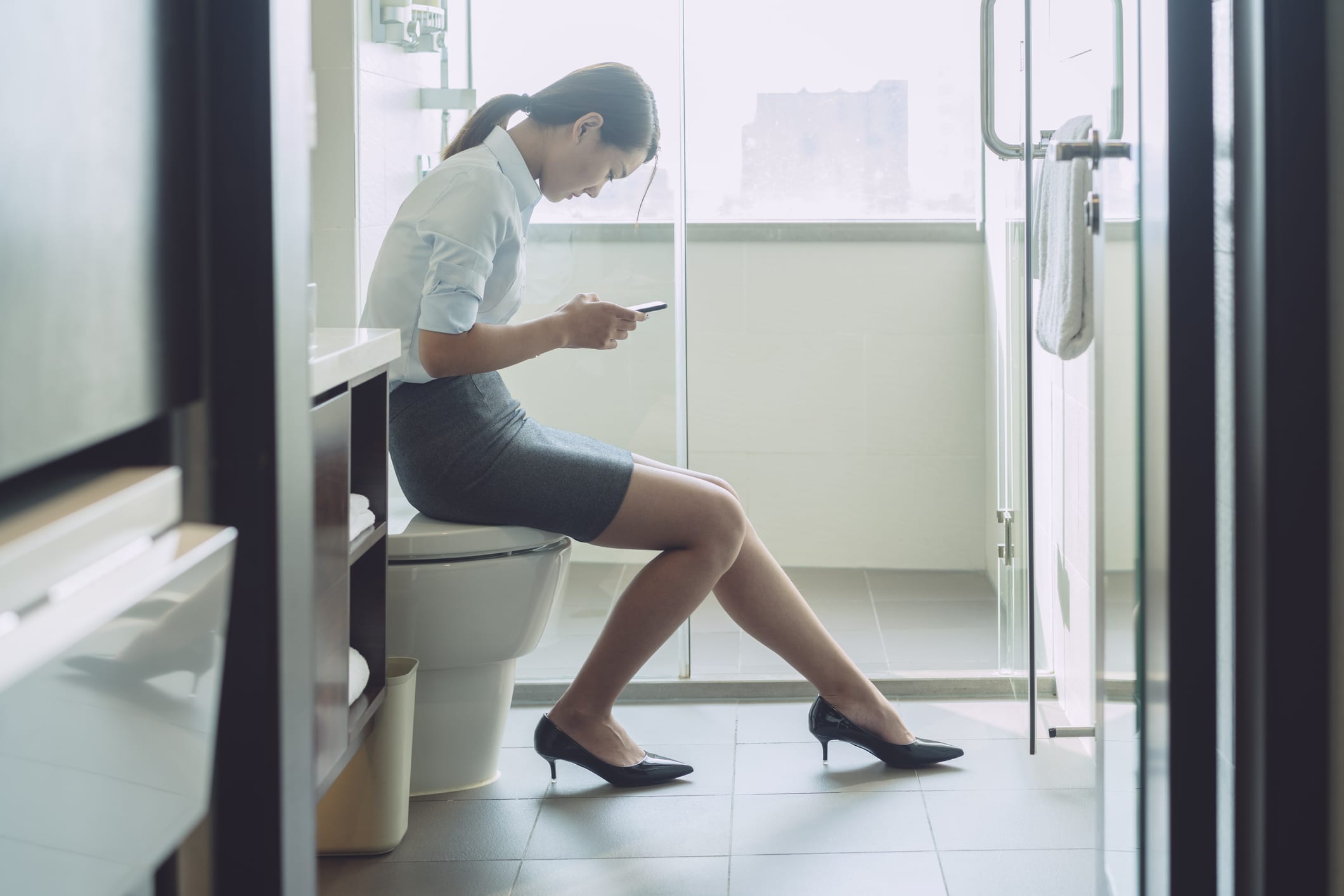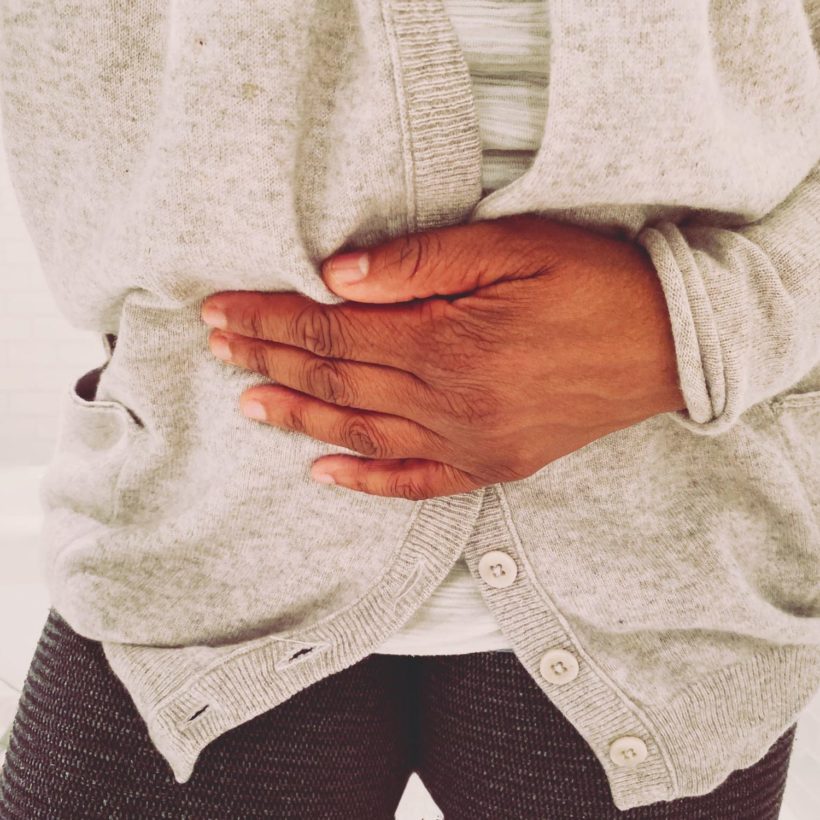To put it bluntly: We all poop. Though we’ve been trained to believe our bathroom habits aren’t meant to be discussed in everyday conversations, it’s important to understand when you have an abnormal bowel movement so your body can function and feel its best. Every May 29th the World Gastroenterology Organisation (WGO) celebrates World Digestive Health Day (WDHD), so we think now is the perfect time to start normalizing the conversation. “Regular bowel movements are essential to feeling healthy and well. Bloating and cramping can make anyone feel sluggish. Most of the time minimal issues are not a significant health risk although constipation can lead to issues like hemorrhoids and fissures while significant diarrhea can lead to dehydration,” says Brian Wolfman, MD of Coastal Gastroenterology Associates, PA.
A typical number of bowel movements can differ from person to person, as there are many varying factors (diet, underlying health conditions, your metabolism, etc.) that contribute to your digestive system. “Normal bowel movements are anywhere between three to four times a day to just one or two per week,” says Wolfman. It may be easier to determine if your bowel movements are normal by their consistency rather than the number of times you go in a day. They should be smooth and in one piece with the girth of a banana. You shouldn’t feel like you have to strain to go, and there shouldn’t be any blood when wiping (which could be indicative of hemorrhoid from an irritated rectum).
If your trips to the bathroom don’t match this description, it’s time to get to the bottom of (sorry, we couldn’t help it) the issue. Here are nine ways you can get better bowel movements and stay regular:
Take a daily prebiotic and probiotic.
“Both probiotics and prebiotics are essential for bowel movements and digestive health. Both of them work harmoniously together as the prebiotics essentially supercharge your probiotics. The existing good gut bacteria that lives inside of you needs to outnumber the bad. That good bacteria need to multiply and adding a prebiotic to your diet will allow the existing good stuff something to feed off of and multiply. You can view prebiotics as the ‘fertilizer’ for your probiotics, one helps the other. When you supplement probiotics, you are adding more good bacteria to what you already have in your system, therefore leading to the increase for the good guys. The prebiotic (one that’s already loaded with fiber) will allow the good stuff to grow. This harmony allows your GI tract to eliminate more frequently while also improving your digestion and boosting your immune system,” says Peter Kanaat, co-founder of GoBiotix.
There are many different types of strains of bacteria that have specific benefits — from heart health to vaginal health. If you’re specifically looking for gut health and better bowel movements, “strains from the Bifidobacterium and the Lactobacillus family are critical for overall digestion,” says Kanaat. If you’re choosing to use oral pre/probiotics to supplement your diet, check out how many colony-forming units there are: “The higher the CFU level will lead to even more bowel movements,” he says. There are plenty of ways you can incorporate probiotics into your diet as well (think: sauerkraut and kefir).
Keep oral hygiene in mind.
Not many people may realize this, but “dental hygiene can affect bowel movements. We swallow about one to two liters of saliva a day filled with all types of oral bacteria, possibly pathogenic. If we have poor dental hygiene, the bacteria within our oral microbiome can reseed our gut with pathogenic bacteria that negatively affect bowel movements,” says Kimberly Griffith, MS-HNFM, Thryve clinical research partner.
Get more fiber in your diet.
You’ve got to eat in order to poop, and it’s important to load up on nutrient-rich foods that avoid constipation. “The easiest and healthiest way to help with healthy bowel movements is to increase your dietary fiber. This ranges from leafy greens vegetables to fruits like apples and pears. Some cereals are naturally high in fiber [like Kellogg’s All-Bran, which has 10g of fiber per ½ cup] and some are specifically for high fiber [like Fiber One Original Bran, which has 14g of fiber per ½ cup].

Adding fiber supplements like psyllium, Metamucil, or Benefiber can be a better way to consistently take in a specific amount of fiber daily as diets can change from day to day. There’s no specific amount needed as everyone is different so start low and gradually increase every one to two weeks,” says Wolfman.
Increase your water intake.

“Decreased water intake leads to dehydration and one of the first places the body will try and save water is in your stool. If you aren’t drinking throughout your day, you may develop dry hard stools,” says Wolfman. This doesn’t mean you should drown yourself in water: “Drinking excessive amounts of water will not help you have a bowel movement any better because that unused water is just peed out,” says Wolfman. And don’t forget that H2O isn’t your only water source. Fruits and vegetables are not only great sources of fiber, but they have more water content. It also helps to feel hydrated if you have frequent diarrhea and you’re losing a lot of water content, but make sure to pair H2O with fiber-filled foods to harden up your stool.
Find ways to reduce your stress levels.
Do you know the feeling of having a knot in your stomach when you’re nervous or stressed? “Stress and anxiety affect bowel movements in a few ways through the microbiota-gut-brain axis and gut-brain axis. First, stress negatively affects our beneficial bacteria within our gut microbiota that contribute to healthy bowel movements by way of stress hormones, autonomic changes, and induced inflammation, according to studies. Secondly, additional studies show that psychological stress can delay gastric emptying and increase visceral hypersensitivity, both of which directly affect bowel movements,” says Griffith.
Get into the right “squat” position.
Products like Tushy Ottoman “open” up your colon so get you in the best position while you’re sitting on the can. “They’re probably one of the most important things to help have an easier bowel movement. Anyone that has kids has seen this: The baby stands in the corner and doesn’t stand straight up but bends up at the waist against the wall and poops. Our bodies are made so we don’t pass stool while standing up. Muscles are contracted pulling the rectum so there is an acute angle to prevent passage. When we sit down and raise our knees certain muscles are contracted and relaxed, which then straighten the rectum and allow a much easier passage of stool. Raising our legs up higher than the height of a typical American toilet helps this process,” says Wolfman.
Notice shifts in your routine.
Ever notice that on weekends you tend to get “backed up’? It’s because your routine is thrown off — for instance, you might not consume your usual morning cup of coffee on weekends because you don’t need to focus on work. “Our bowel movements are directly tied to us. Waking up in the morning stimulates a bowel movement. Coffee stimulates us. Breakfast stimulates us. Driving to work and being at work may develop into a response to avoid having a bowel movement. When these daily routines are disrupted, so are our bowel movements which can snowball into constipation,” says Wolfman. Of course, this doesn’t mean that you have to get up and drive to work on weekends to get your bowels moving, but it means that on weekends or vacations when your normal activities are disrupted, you may want to take extra steps to encourage bowel movements in other ways (like making a conscious effort to eat more high-fiber foods).
Get moving.

The good news is that it doesn’t take a high-intensity or aggressive workout routine to help encourage a bowel movement. “The more you exercise, the better. But any exercise will help with bowel movements,” says Wolfman. A regular 10-15 minute walk around the block should do the trick to help your digestive system get going. If you’re feeling particularly bloated and constipated, focus on exercises that compress and extend the intestines (like sit-ups or forward lunges). “Conversely, a sedentary lifestyle spent on the couch or in extreme situations as when you are bed bound can lead to significant constipation. Being bed-bound can lead to constipation which in turn can lead to obstipation, the inability to pass any stool, which will develop into a fecal impaction which may need medical attention,” says Wolfman.
Build up your pelvic floor muscles.
Say you’ve been pretty good about staying active, drinking water, and eating all the high-fiber foods, yet you’re still experiencing constipation or irregular bowel movements, it could be pelvic floor dysfunction. “We may be in the right position and contracting our abdominal muscles to pass a stool, but in the same process, we are contracting muscles in our pelvic floor and anus to prevent the passage of stools. These may be learned responses from childhood when we attempted to not have a bowel movement in an opportune time or to get in trouble. Pelvic floor dysfunction may also be from pregnancy, pelvic surgery, obesity, or advanced age. Physical therapists can help relearn the process of contracting certain muscles while relaxing other muscles to make bowel movements less strenuous. They use biofeedback, physical therapy (everyone knows about their kegel exercises), or relaxation techniques with very good response rates,” says Wolfman.
We only recommend products we have independently researched, tested, and loved. If you purchase a product found through our links, Sunday Edit may earn an affiliate commission.







